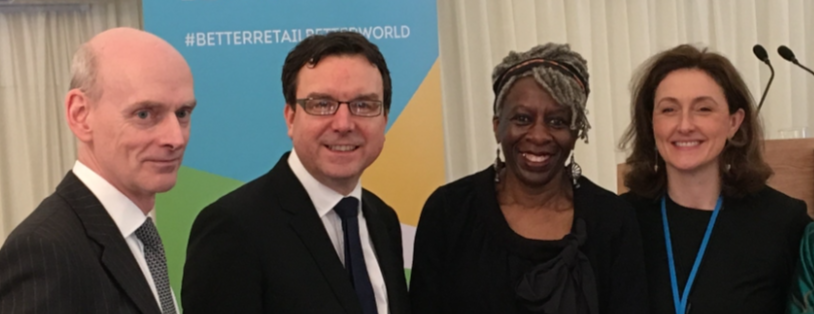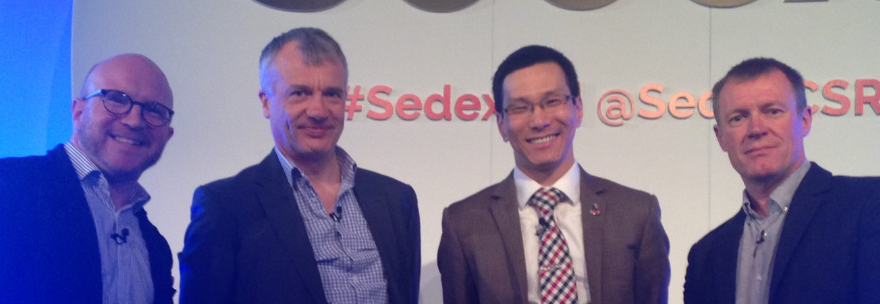Owned Goals
Three years into their 15-year lifetime, an illustration of the growing adoption of the Sustainable Development Goals can be found in a recent review by Carbon Clear which looked at the how the SDGs feature in the reporting of listed companies. They found mention of the SDGs in 47% of organisations in the FTSE100, 67% in France’s CAC40 and 74% in Spain’s IBEX35. Corporate annual reports are clearly a lagging indicator, so the real level of current engagement will almost certainly be higher still. I’ve been involved in a number of events this week which reflect that increasing profile.

First up was as a guest at the launch in Parliament on Tuesday of the British Retail Consortium’s ‘Better Retail, Better World’ initiative. The BRC is a member organisation covering retail across a range of sectors and has spent some time putting together a set of targets under five of the seventeen SDGs which are especially relevant to retail. Working with their members, they have chosen SDGs 8, 10, 11, 12 and 13 (loosely work, equality, communities, consumption and climate) and are encouraging members to work with their supply chains to drive improvements in these areas particularly. I know a number of the people who have been involved in doing the work and look forward to seeing its progress. Pictured below at the launch are Richard Pennycook (Chair of BRC), Andrew Griffiths (who has Minister for Retail as part of his portfolio), cross-bencher Baroness Young of Hornsey who hosted the event and Tanya Steele (CEO of WWF).

The following day I had the privilege of introducing and moderating a panel discussion on the SDGs at Sedex’s annual conference. Held at The Brewery (now just an events venue) in London, the overall theme of the conference was ‘beyond compliance’. I provided a brief overview of the subject and the inter-linkages between the SDGs and the panellists went on to describe how their respective organisations were linking their activities to the SDGs to help provide focus on the best way to address the social and environmental issues which matter most to their stakeholders. The audience was highly engaged and came up with some very interesting questions for the panel. Pictured below with me are Oliver Hurrey of 2degrees, Jonathan Horrell of Mondelez and Andrew Butler of Proctor & Gamble (the latter sporting a natty SDG lapel badge). You will have noticed that it is not a hugely diverse group, but the overall speaker faculty at the event showed very good gender balance.

Finally, with a more direct link to brewing, yesterday I was on stage in Liverpool at the annual convention of the Society of Independent Brewers, talking to some of their members about what sustainability might mean to them. I used water as an exemplar topic, given its obvious significance to the sector, and there was an excellent discussion afterwards with members of the audience, one of whom has even put alot of his own time and effort into developing a very well-thought-out concept to improve the resource efficiency of the whole sector. My talk concentrated on SDGs 6 (clean water) and 14 (life below water), and there in the audience was an excellent example of SDG17 (partnerships) supporting SDGs 6, 12, 13 and more. I’ll be providing what help I can to support the initiative as it deserves the best chance it can get of success.